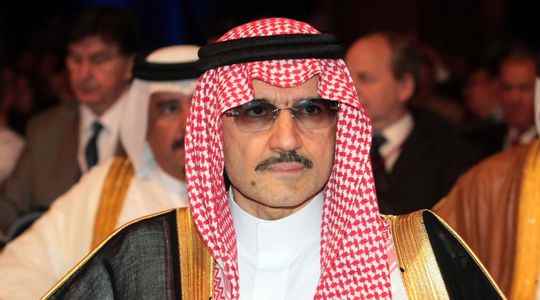Six months of a very eventful acquisition… and turbulence that is not yet over. Elon Musk bought Twitter for $44 billion and took control of it on Friday, October 28. The boss of Tesla and SpaceX immediately dissolved the board, fired the chief executive and other senior officials. Twitter will begin layoffs this Friday. According the washington postthe new leader plans to lay off about 50% of the approximately 7,500 employees.
Elon Musk financed the transaction with his personal fortune, contributions from investment funds and other large fortunes, as well as bank loans that the blue bird company will have to repay. Among the shareholders in the capital of Twitter, one of them particularly attracts attention: that of the Saudi prince Al-Walid Bin Talal. According to a document submitted to the American market authority, the SEC, this 67-year-old businessman has become the second largest shareholder in the social network. The businessman, who had initially rejected Elon Musk’s offer, deeming it too low compared to the “intrinsic value of Twitter”, finally brought him the almost 35 million shares he already owned .
In the $ 44 billion deal that allowed the takeover of Twitter, the approximately 35 million shares held jointly, and brought to Elon Musk, by Al-Walid Bin Talal himself and by his investment company Kingdom Holding Company (KHC) have indeed weighed for nearly 2 billion. As reminded Releasethe presence of Al-Walid Bin Talal among Twitter investors is not new: in 2011, this grandson of the founder of the Saudi kingdom had committed to Twitter 300 million dollars (or 229 million euros at the time) and its weight has continued to grow, allowing it to become the number two shareholder in 2015.
The Saudi shareholding in the capital of Twitter worries in Washington
Dubbed the “Warren Buffett of the Middle East” by the Time, Al-Walid Bin Talal is used to risky and publicized bets, remember The echoes. Rescuer of the financial group Citicorp (the predecessor of Citigroup Inc), weighed down by bad debts in the 1990s, he saw his participation fly away by more than 190% during the following decade, specifies the economic daily. At the time of the 2008 financial crisis, the Saudi prince raised his stake as the stock price plummeted. Today, Citigroup stock is trading at less than a tenth of its pre-crisis value.
Al-Walid Bin Talal has been reorienting Kingdom Holding’s portfolio for 20 years on tech and media with an entry into Snapchat in 2018 (2.3% of the capital for 250 million dollars). He also owns 18.7% in the Rotana group, present through television, radio, cinema and music throughout the Middle East, complete The echoes.
The Saudi shareholding in the capital of Twitter worries in Washington, while for Crown Prince Mohammed bin Salman, known as “MBS”, the monitoring of social networks “is a security imperative for its governance”, reminds Release David Rigoulet-Roze, associate researcher at the Institute of International and Strategic Relations (Iris). According the washington postthe US Department of the Treasury contacted Twitter to inquire about the new governance of the company, and in particular the details of the sensitive information on the social network which will be accessible to the main investors.
For six months, the HKC company has been 17% owned by Saudi Arabia’s sovereign wealth fund, headed by Crown Prince “MBS”. Relations between Al-Walid Bin Talal and “MBS” have, however, been complicated. This prince was one of some 300 personalities arrested and then locked up in the Ritz-Carlton hotel in Riyadh during a wave of anti-corruption crackdowns in November 2017 orchestrated by “MBS”. He was released three months later after making financial arrangements with the authorities. According to opponents of “MBS”, this wave of arrests was an attempt to ward off potential rivals to consolidate its power in the wealthy Gulf monarchy.
David Rigoulet-Roze notes that Al-Walid Bin Talal then “had to renounce all forms of political influence in view of the future succession of the current King Salman”. He continues: “Mohammed bin Salman has agreed to give him some economic leeway, because he also needs Prince Al-Walid bin Talal as a surety with potential investors, to carry out his famous ‘Vision 2030’ plan.” From now on, Al-Walid Bin Talal is one of the first supporters of the modernization reforms undertaken by Mohammed bin Salman.
